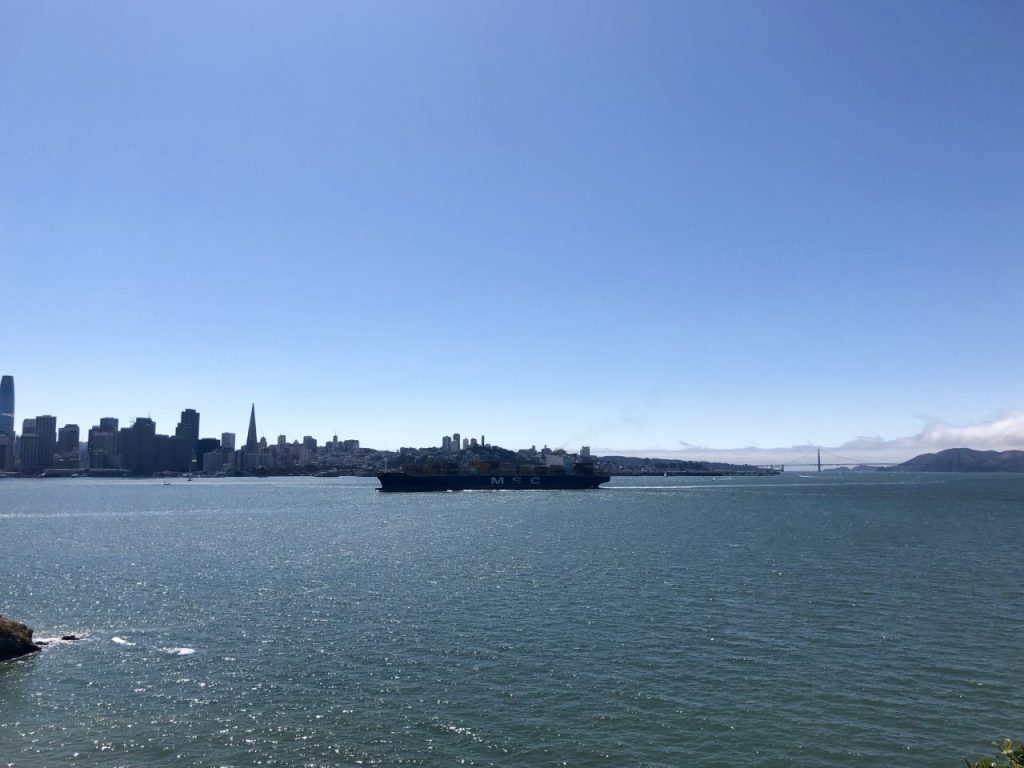What did you accomplish with your host organization? What was the impact of your work?
My summer at BSR was one of the most educative periods of my life to date. I had three main work accomplishments with the Clean Cargo Working Group (CCWG). First, the IMO 2020 report which I wrote about in my previous blog post.
Second, CCWG strives to be forging new partnerships in and outside of its membership to build its capacity and foster innovative solutions to decarbonizing the international maritime shipping industry. For an example of one of these innovative solutions, CCWG was an instrumental organizer between Heineken, GoodFuels, Combined Cargo Terminals, and Reinplus Fiwado Bunker to partner together and build a 100% sustainable biofuel ship (I was not involved with this project, as it pre-dated my time at BSR). To increase our capacity to be innovators in this field, I built a landscape map identifying innovators and innovation catalysts in green shipping around the world with whom we could connect with our members to start new, sustainable partnerships. As a result of this work, CCWG is connecting with many innovators around the world, and is already participating in one incubator’s award process. In addition to growing our capacity and reach, I re-designed some of our recruitment decks to attract more members to CCWG.
Third, I created a survey tool to help shippers (companies who own goods and hire ship owners to move their goods) assess the sustainability of their procurement process. When shippers want to make more sustainable decisions when procuring their shipping orders, they need ask questions like: what is emissions footprint of our shipping activities, are our carriers participating in leading sustainability initiatives such as CCWG, and is our leadership investing resources to make more sustainable choices? When the survey tool is launched (scheduled for October), shippers around the world will have a self-assessment tool that will provide guidance on how to take the next step to making their procurement process more sustainable.
Did your experience provide any unexpected discovery, self-reflection, or epiphany?
Before this summer I had no exposure to the transportation sector, and now I am looking for work primarily in transportation. In addition, my whole life I have thought I would work in government, focusing on public policy, but now I am leaning towards staying in the private sector, focusing on sustainability collaborations in business.
Describe the benefits of this experience for you professionally and personally.
I was working alongside people who are at the forefront of decarbonizing an industry that represents 2.2% of global greenhouse gas emissions and moves approximately 90% of the world’s cargo in volume. I was on weekly calls and daily emails with global heads of sustainability for some of the biggest companies in the world, representing a leading sustainability initiative. It was a truly unique experience that opened up a lot my doors of professional growth and networking.
In addition, I moved to San Francisco and absolutely fell in love with the city. I am here to stay! A fun fact, if you are in the Bay Area, and you see a cargo ship rolling into the Port of Oakland (as I did in this picture below taken from Treasure Island), rest easy knowing that that ship (and every cargo ship) that comes into the Port of Oakland is a CCWG member!




